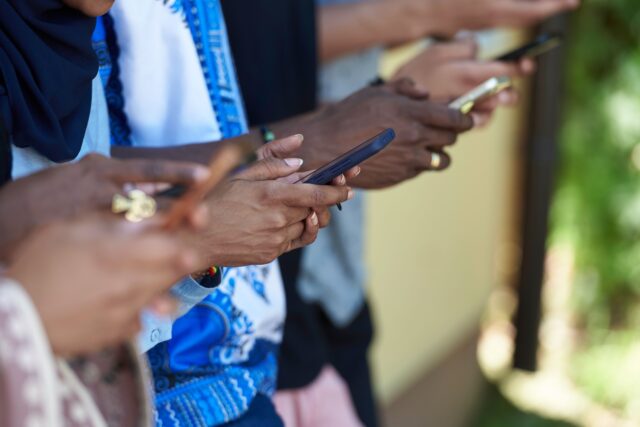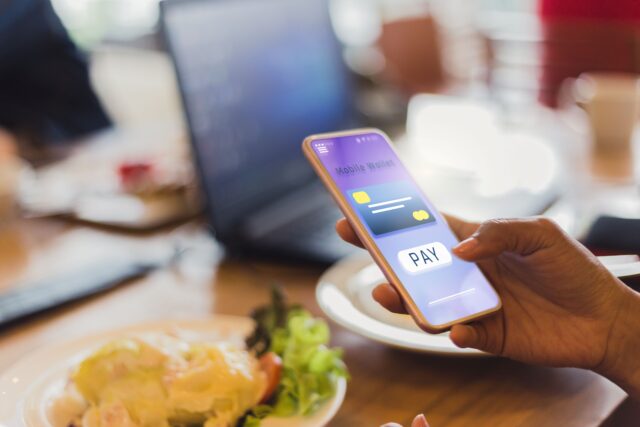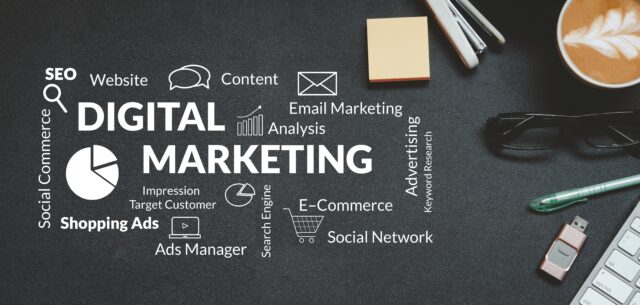In today’s digital age, the global app market is more accessible than ever, yet many developers face the challenge of making their apps resonate across diverse cultures and regions. App localization—the process of adapting an app to meet the language, cultural, and other requirements of a specific target market—is a crucial step in transcending these barriers.
It’s not merely about translating the content but tailoring the app’s user experience to feel native to each audience. This approach not only enhances user satisfaction but significantly expands an app’s reach, increasing its potential for success in international markets.
The Ghanaian market, in particular, presents a unique and promising opportunity for app developers. With a rapidly growing smartphone penetration rate and an increasing appetite for digital services, Ghana is ripe for apps that cater to its local needs and preferences.
The country’s youthful population is tech-savvy, eager to adopt new technologies, and ready to embrace apps that deliver convenience, entertainment, and utility. Moreover, Ghana’s evolving digital infrastructure, coupled with a vibrant startup ecosystem, offers a supportive environment for app growth and adoption.
Localizing your app for the Ghanaian market is not just an opportunity; it’s a strategic move to engage a new wave of users eager for apps that understand their language, respect their culture, and meet their specific needs. As the digital landscape in Ghana continues to evolve, the demand for localized content is expected to rise, presenting a fertile ground for developers willing to invest in making their apps truly resonate with the local audience.
Understanding the Ghanaian App Market

Ghana’s app market is dynamic and diverse, driven by a young, tech-savvy population that is increasingly mobile-first. Understanding the demographic nuances, user behaviors, and cultural preferences is essential for app developers aiming to make a meaningful impact in this vibrant landscape.
Demographic Overview
Ghana boasts a youthful population, with a significant portion under the age of 25. This demographic is pivotal for app developers as it represents the most active online users, including early adopters of technology and digital applications.
Smartphone penetration in Ghana is on a steady rise, fueled by affordable internet access and a growing availability of budget-friendly smartphones. Preferred devices often run on Android, which dominates the market due to its wide range of devices catering to different economic segments.
User Behavior
- Popular App Categories: In Ghana, social networking, messaging, financial services, and entertainment (including streaming music and video) apps are highly popular. Educational and health-related apps have also seen a surge in usage, particularly those offering localized content.
- Spending Habits: There’s a growing willingness among Ghanaian users to pay for apps, especially those that offer substantial value in terms of convenience, entertainment, or personal development. Mobile money has revolutionized online payments, making it easier for users to make in-app purchases—this also makes app monetization easier for developers.
- Peak Usage Times: Understanding the peak times when users are most active can help in planning content updates and promotional activities. Generally, usage spikes in the evening hours and over the weekend, aligning with leisure time when users are more likely to engage with apps for longer periods.
Cultural Insights
- Languages: Ghana is a multilingual country, with English as the official language and several local languages such as Twi, Ga, Ewe, and Hausa widely spoken. Localizing apps into these languages can significantly enhance user experience and adoption.
- Symbols and Holidays: Incorporating local symbols, themes, and holidays into app design and marketing can resonate deeply with Ghanaian users. Celebrations like Independence Day, Ghanaian festivals, and other national holidays are excellent opportunities for thematic content and promotions.
- Local Content Preferences: Ghanaians appreciate content that reflects their culture, humor, and societal norms. Apps that feature local news, music, movies, and traditional games tend to engage users more effectively by fostering a sense of community and relevance.
For app developers, tapping into the Ghanaian market means more than just translating language; it involves a deep dive into the fabric of Ghanaian society, understanding its people, their preferences, and how they interact with technology. Success in this market is predicated on a developer’s ability to merge global app standards with local flavors, creating a product that is both globally competent and locally relevant.
The Importance of Local Languages

Ghana’s linguistic landscape is as diverse as its cultural fabric, with over 80 languages spoken across the country. Among these, Akan (and its dialects), Ewe, Ga, and English stand out for their widespread use.
English is the official language and serves as the lingua franca in business and education. However, local languages hold a deep-rooted cultural significance and are predominant in daily communication, media, and entertainment.
Why Include Local Languages in Your App
- Enhanced User Experience: Localizing your app into Ghana’s major languages can dramatically improve the user experience. It makes your app more accessible and user-friendly to a broader segment of the population, including those who may not be fluent in English.
- Increased App Adoption: Apps that speak to users in their native language tend to have higher adoption rates. Users are more likely to download, use, and recommend apps that they can easily understand and navigate.
- Competitive Advantage: Offering multiple local language options can set your app apart in a crowded market. It shows a commitment to catering to the local user’s needs and preferences, enhancing brand loyalty and user satisfaction.
Tips on Integrating Multi-Language Support
- Research and Prioritize: Start with thorough research to identify the most widely spoken languages among your target user base. Prioritizing the inclusion of these languages can maximize your app’s reach and impact.
- Utilize Professional Translation Services: For accuracy and cultural nuance, invest in professional translation services rather than relying solely on automated tools. This ensures that app content is contextually relevant and culturally sensitive.
- Design for Localization: From the outset, design your app with localization in mind. This includes using flexible layouts that can accommodate text expansions in different languages and ensuring that icons and imagery are culturally appropriate.
- Test with Local Users: Before rolling out new language options, conduct testing with native speakers to catch any inaccuracies or cultural mismatches. Feedback from local users is invaluable for refining the localization.
- Support RTL Languages: If including languages that read right-to-left (RTL), such as Arabic, ensure your app’s UI can adapt accordingly. This might require additional coding and design adjustments.
- Continuous Updates and Localization: Keep in mind that app localization is an ongoing process. Regular updates may introduce new content that requires translation. Maintaining a relationship with your translators and local users can help keep the app relevant and culturally accurate.
Incorporating Ghana’s local languages into your app is not just about translation; it’s about creating a more inclusive digital space that respects and celebrates the country’s rich linguistic diversity. By doing so, developers not only enhance the user experience but also contribute to preserving and promoting Ghanaian cultural identity in the digital realm.
Adapting Your App’s User Interface

Creating an app that resonates with the Ghanaian audience involves more than just functional design; it requires a deep understanding of cultural aesthetics, preferences, and symbols that hold significance.
An app’s user interface (UI) and user experience (UX) are pivotal in making users feel seen and valued. Here are key considerations and tips for adapting your app’s UI/UX for the Ghanaian market.
Design Considerations
- Color Schemes: Colors carry cultural significance and emotional cues. In Ghana, vibrant colors are often associated with positivity, energy, and celebration. Red, gold, green, and black, mirroring the Ghanaian flag, evoke a sense of national pride. Utilizing these colors can enhance connectivity with the app. However, it’s essential to understand the context and nuances; for example, while red is vibrant, it can also symbolize mourning when used in certain contexts.
- Symbols and Imagery: Incorporating local symbols can deeply enrich your app’s UI. Adinkra symbols, traditional to the Akan people, convey complex concepts and values, such as wisdom, unity, strength, and integrity. These symbols, when used thoughtfully, can add layers of meaning to your app’s design. Similarly, imagery that reflects the Ghanaian landscapes, landmarks, and everyday life can enhance the app’s local relevance.
- Typography: The choice of typeface can significantly impact readability and user engagement. When incorporating local languages, ensure the font supports the unique characters and accents. Fonts that mimic traditional handcrafted styles can add a local touch but use them judiciously to maintain legibility.
UX/UI Tips
- Simplify Navigation: Design your app with clear, intuitive navigation to accommodate users with varying levels of tech-savviness. Menus and buttons should be easily accessible, with actions that follow a logical flow. Consider the use of icons and imagery that are familiar to the local audience to guide navigation.
- Responsive Design: With a variety of devices and screen sizes available in the Ghanaian market, a responsive design ensures your app delivers a consistent experience across devices. This adaptability is crucial for reaching users on both high-end smartphones and more basic models.
- Culturally Relevant Content: Personalize content to reflect local events, holidays, and trends. This could mean featuring content around significant holidays such as Independence Day or popular festivals. Localizing content goes beyond translation, involving the adaptation of content to match local interests and contexts.
- User Engagement: Engage users by incorporating interactive elements like quizzes, polls, or games that reflect local culture and interests. Feedback mechanisms should be straightforward, encouraging users to share their experiences and suggestions.
- Accessibility: Consider the diverse needs of your audience, including those with disabilities. Features like text-to-speech, adjustable text sizes, and high-contrast modes can make your app more accessible to everyone.
By prioritizing these design considerations and UX/UI tips, developers can create an app that not only appeals to the Ghanaian market but also fosters a sense of community and belonging among its users. The goal is to build an app that feels familiar and intuitive, celebrating the rich cultural heritage of Ghana while providing a seamless and engaging user experience.
Payment Integration Strategies

The success of an app in the Ghanaian market, especially those involving transactions, significantly depends on the flexibility and inclusivity of its payment integration strategies. Understanding and incorporating the most popular payment methods can drastically enhance user convenience and trust, leading to higher conversion rates and user retention.
Popular Payment Methods in Ghana
- Mobile Money: Mobile money is the most dominant payment method in Ghana, with widespread adoption across various demographics. Services like MTN Mobile Money, Vodafone Cash, and AirtelTigo Money allow users to store, send, and receive money using their mobile phones. The ubiquity of mobile money makes it a crucial payment method for any app targeting the Ghanaian market.
- Bank Transfers: With the growing digitization of banking services, direct bank transfers are becoming increasingly popular for online transactions. Integrating with banks through APIs can allow users to make payments directly from their bank accounts.
- Credit/Debit Cards: While not as prevalent as mobile money, credit and debit card usage is on the rise, especially among the middle and upper classes. Visa and MasterCard are the most widely accepted, and including them as payment options can cater to this segment of users.
- Payment Gateways: Payment gateways such as Paystack, Flutterwave, and PayPal (for international transactions) are also popular, offering a variety of payment options, including mobile money, bank transfers, and cards. Integrating with these gateways can provide users with multiple payment choices, enhancing convenience.
Best Practices for Integrating Payment Solutions
- User-Friendly Design: Ensure the payment process is straightforward and intuitive. Minimize the number of steps required to complete a transaction and provide clear instructions at each step.
- Security: Security is paramount in payment transactions. Implement robust encryption methods, comply with PCI DSS standards, and use secure payment gateways to protect user data.
- Local Currency Support: Allow users to view prices and make payments in Ghanaian cedi (GHS) to avoid confusion and conversion fees, making transactions smoother and more transparent.
- Payment Confirmation: Send immediate confirmation of transactions to users via SMS or email—for example, you can leverage Bulk SMS offered by a platform like TXT Connect. This not only provides reassurance but also helps in record-keeping and dispute resolution.
- Customer Support: Offer dedicated customer support for payment-related queries and issues. Prompt and effective customer service can significantly enhance trust and user satisfaction.
- Flexible Payment Options: Incorporate a variety of payment methods to accommodate different user preferences and accessibilities. The more options you provide, the wider the audience you can cater to.
- Testing and Optimization: Regularly test the payment process to identify and fix any issues. Collect user feedback to continually refine and improve the payment experience.
By integrating these payment methods and adhering to best practices, apps can significantly improve their market penetration and user satisfaction in Ghana. The key is to offer a seamless, secure, and inclusive payment experience that resonates with the local users’ preferences and behaviors.
Legal and Regulatory Considerations

Navigating the legal and regulatory landscape is crucial for any app operating in Ghana. The country has established various regulations and guidelines to govern digital applications, focusing on user protection, data privacy, and cybersecurity. Understanding these legal frameworks is essential to ensure compliance and foster trust among users.
Overview of the Regulatory Environment for Digital Apps in Ghana
- Data Protection Act, 2012 (Act 843): This act regulates the process of obtaining, using, storing, and sharing personal data. It mandates the protection of the individual’s privacy and personal data by data controllers and processors.
- Electronic Communications Act, 2008 (Act 775): This act provides the legal framework for electronic communications and transactions, including digital applications. It outlines the obligations of service providers in terms of service quality, consumer protection, and privacy.
- Cybersecurity Act, 2020 (Act 1038): Enacted to regulate cybersecurity activities in Ghana, this act establishes the Cyber Security Authority, which oversees the protection of critical information infrastructure, and mandates reporting of cybersecurity incidents.
- Bank of Ghana Regulations: For apps involved in financial transactions, compliance with the Bank of Ghana’s regulations is crucial. This includes adhering to mobile money guidelines, payment systems, and electronic money issuers’ regulations.
Tips on Compliance with Local Laws and Regulations, Including Data Protection
- Register with the Data Protection Commission: If your app collects, uses, or stores personal data from users in Ghana, it’s necessary to register with the Data Protection Commission and comply with the principles of data protection as outlined in Act 843.
- Implement Robust Data Protection Measures: Ensure the app has strong encryption for data storage and transmission. Establish clear privacy policies that inform users about the type of data collected, usage, storage, and their rights concerning their data.
- Obtain Consent for Data Collection and Use: Always seek explicit consent from users before collecting their personal data. Provide users with the option to opt-out and ensure that the process for data collection is transparent and compliant with the law.
- Regularly Update Security Measures: With the Cybersecurity Act in place, it’s important to regularly update your app’s security features to protect against cyber threats and vulnerabilities. Conduct periodic security audits and risk assessments.
- Stay Updated on Regulatory Changes: The legal and regulatory framework for digital applications in Ghana is subject to change. Stay informed about any new laws or amendments and adjust your app’s operations accordingly.
- Seek Legal Advice: To navigate the complexities of compliance, consider consulting with legal experts specializing in Ghanaian law. This can help ensure that your app meets all regulatory requirements and avoids potential legal pitfalls.
- User Education: Educate your users on their rights and your app’s practices regarding data protection and privacy. Transparency in how you handle user data can significantly enhance trust.
Compliance with Ghana’s legal and regulatory framework not only avoids legal complications but also builds user trust and credibility, key factors for success in the digital app market. By prioritizing legal compliance and data protection, developers can create a secure and user-friendly environment conducive to growth and user retention.
Marketing Your App in Ghana

Marketing an app in Ghana requires a nuanced understanding of the local market, audience preferences, and the digital landscape. Effective strategies hinge on leveraging the right channels and crafting messages that resonate with the Ghanaian audience. Below are key insights into the most effective marketing channels and strategies, along with success stories that highlight practical applications of these approaches.
Effective Marketing Channels
- Social Media: With high engagement rates on platforms like Facebook, Instagram, Twitter, and WhatsApp, social media stands out as a potent tool for reaching and engaging with potential app users in Ghana. Tailoring content to the local context, using local languages, and engaging with users through interactive posts and ads can drive significant visibility and downloads.
- Mobile Marketing: Given the high mobile penetration rate, SMS marketing and mobile ads can be highly effective, especially for reaching users in areas with limited internet access. Campaigns offering incentives, such as free data for downloading the app, can drive higher engagement.
- Influencer Partnerships: Collaborating with Ghanaian influencers and content creators who resonate with your target audience can provide credibility and extend your reach. Influencers can help demonstrate your app’s value in a way that feels authentic and relatable.
- Local Events and Sponsorships: Participating in local tech events, fairs, and festivals can increase brand visibility and user acquisition. Sponsorships or partnerships with events that attract your target demographic can also be a strategic move.
- Traditional Media: While digital channels are critical, traditional media outlets such as radio, television, and newspapers remain influential, especially for reaching audiences across different age groups and regions.
Strategies Within the Ghanaian Context
- Localize Content: Ensure that all marketing materials, including ads, social media posts, and promotional videos, are localized not just in language but in cultural references, humor, and nuances. This builds a deeper connection with the audience.
- Leverage Mobile Money Incentives: Given the popularity of mobile money, offering incentives through mobile money transactions can encourage app downloads and active use.
- User Testimonials and Success Stories: Sharing testimonials and success stories from local users can enhance trust and credibility, showcasing the app’s benefits in a relatable way.
- Community Engagement: Building a community around your app through online forums, social media groups, or user events can foster loyalty and word-of-mouth referrals.
Success Stories
- ExpressPay: An integrated payment platform that achieved widespread adoption in Ghana by offering a simple solution for paying bills, buying airtime, and conducting other transactions. Marketing efforts focused on convenience and security, resonating with users’ needs.
- mPharma: This healthcare app successfully penetrated the Ghanaian market by addressing local healthcare challenges. mPharma utilized partnerships with local pharmacies and healthcare providers, coupled with community-based marketing strategies, to build trust and drive adoption.
- Asoriba: A church management application that streamlined communication and financial transactions for churches in Ghana. Asoriba leveraged direct engagement with church leaders and employed social media effectively to reach its target audience, showcasing the platform’s value in organizing church operations.
These success stories underline the importance of understanding the local market and leveraging a mix of digital and traditional marketing strategies. Tailoring your approach to the unique preferences and behaviors of the Ghanaian audience can significantly enhance your app’s visibility, user acquisition, and retention.
Collaborating with Local Talent

In the competitive app market, the authenticity and local relevance of your product are invaluable. One of the most effective ways to ensure your app resonates with the Ghanaian audience is by collaborating with local talent. Local developers, designers, and marketers bring a wealth of knowledge and insight that can significantly enhance your app’s appeal and functionality. Here’s how tapping into local expertise can benefit your app development and localization efforts.
Benefits of Working with Local Talent
- Cultural Insight and Relevance: Local professionals inherently understand the cultural nuances, language subtleties, and user preferences specific to Ghana. This insight is crucial for developing content, design, and marketing strategies that truly resonate with the local audience.
- Market Understanding: Local developers and marketers are familiar with the Ghanaian digital landscape, including the most effective channels for user acquisition, engagement trends, and regulatory considerations. This knowledge can streamline your go-to-market strategy and avoid costly missteps.
- Network and Partnerships: Collaborating with local talent opens doors to a network of potential partnerships, suppliers, and channels that might otherwise be inaccessible. These connections can facilitate smoother operations, distribution, and promotional activities.
- Language and Localization: Integrating local languages and cultural references into your app can significantly enhance user experience. Local linguists and content creators can ensure translations are accurate, culturally sensitive, and engaging.
- Innovation and Creativity: Local talent can bring fresh perspectives and innovative solutions to your app, drawing from their understanding of local challenges and opportunities. This can lead to unique features or services that set your app apart.
Enhancing Localization Efforts Through Local Expertise
- User Interface and Experience: Designers with a deep understanding of local preferences can tailor your app’s UI/UX to match the expectations and behaviors of Ghanaian users, from color schemes and imagery to navigation and functionality.
- Content Creation: Local content creators can produce relevant, engaging content that speaks directly to your target audience, whether it’s through blog posts, social media, or in-app text. This content can significantly improve engagement and retention.
- Feedback and Iteration: Having a local team allows for continuous feedback and rapid iterations based on user input and market trends. This agility is crucial in a fast-paced app market.
- Marketing and Branding: Marketers with local expertise can craft campaigns that effectively communicate your app’s value proposition in a way that’s compelling and relatable to the Ghanaian audience. They can also navigate local social media trends, influencer partnerships, and offline events to maximize your app’s visibility.
- Compliance and Legal Navigation: Local legal and regulatory knowledge is indispensable for ensuring that your app complies with Ghanaian laws, particularly in areas like data protection, financial transactions, and cybersecurity.
Collaborating with local talent in Ghana not only enriches your app’s development and localization process but also embeds your product within the fabric of the local market. It’s a strategy that pays dividends in authenticity, user satisfaction, and ultimately, the success of your app in the Ghanaian market.
User Feedback and Continuous Improvement

In the dynamic landscape of app development, user feedback is the compass that guides improvements and innovations. Especially in a specific market like Ghana, where cultural nuances and user preferences play a crucial role in an app’s success, actively seeking and incorporating user feedback is indispensable. Here’s how feedback can be leveraged for continuous improvement, ensuring your app remains relevant and valuable to the Ghanaian audience.
Gathering User Feedback
- In-App Reviews and Ratings: Encourage users to leave reviews and rate your app within app stores. This not only provides direct feedback on user satisfaction but also helps identify areas for improvement and feature requests.
- Surveys: Deploy in-app surveys or use email campaigns to collect user opinions on specific features, usability, and overall experience. Tools like Google Forms or SurveyMonkey can facilitate this process. You can take this a step further and leverage USSD mobile surveys (offered by a platform like SeVO Poll) to make feedback collection easier for those without an internet connectOffering incentives, such as in-app rewards or discounts, can increase participation rates.
- User Testing: Conduct regular user testing sessions with a diverse group of users. Observing real people as they use your app can uncover usability issues, confusion points, and features that users find most valuable. These sessions can be facilitated remotely or through local focus groups.
- Social Media and Online Forums: Monitor social media platforms and online forums for unsolicited feedback. Users often share their experiences, both positive and negative, on these platforms, providing valuable insights into their needs and perceptions.
- Customer Support Channels: Feedback received through customer support inquiries, whether via email, chat, or phone, can highlight common user issues and areas for improvement.
Utilizing Feedback for Iterative Improvements
- Prioritize Feedback: Once feedback is collected, categorize and prioritize it based on frequency, impact, and feasibility. This helps in identifying which changes will offer the most significant benefits to users.
- Develop a Responsive Roadmap: Integrate user feedback into your development roadmap. This might involve fixing bugs, refining features, or introducing entirely new functionalities that address user needs and suggestions.
- Test and Iterate: Implement changes in stages, starting with the most critical or impactful. Use A/B testing to compare user responses to different versions of your app, ensuring that updates genuinely enhance the user experience.
- Communicate Changes to Users: Keep your users informed about updates and improvements made based on their feedback. This communication can be through app update notes, emails, or social media posts. Showing users that their input is valued fosters loyalty and encourages continued engagement.
- Continuous Monitoring: The process of gathering feedback and making improvements should be ongoing. Markets evolve, and user preferences can shift, so staying attuned to these changes is crucial for long-term success.
In the Ghanaian market, where personal connections and community are highly valued, an app that listens and responds to its users can significantly strengthen its position and user base. By embedding user feedback into the continuous development cycle, developers can ensure their app remains adaptive, relevant, and aligned with the needs and expectations of Ghanaian users. This approach not only enhances user satisfaction but also drives growth and retention in a competitive landscape.
Key Takeaways
The journey to successfully launching and growing an app in the Ghanaian market hinges on a deep understanding of local preferences, culture, and technology trends. From integrating local languages and adapting the user interface to reflect Ghana’s rich cultural heritage, to ensuring payment methods align with local practices and navigating the regulatory landscape with precision—these steps are crucial.
Leveraging local talent and continuously incorporating user feedback into the development process are key strategies that can significantly enhance an app’s relevance and appeal.
Developers looking to make their mark in Ghana are encouraged to embrace localization not just as a strategy, but as a fundamental principle that guides every aspect of their app’s design, development, and marketing. By doing so, they can build apps that not only succeed commercially but also resonate deeply with the Ghanaian audience, fostering a sense of community and belonging.




